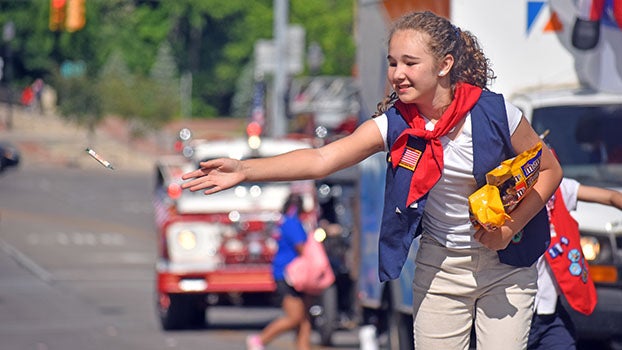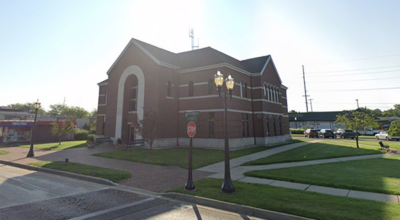City refinancing bonds to save $135,000
Published 10:57 pm Monday, October 11, 2010
By JOHN EBY
Dowagiac Daily News
Taking advantage of historic low interest rates for 10 years remaining on 2000 water and sewer bonds should save the city $135,000 in interest.
“This refinancing is part of a larger strategy to review all of the loans that are outstanding with the city to determine if it makes sense to either refinance or, in some cases, pay off the loan to reduce the interest cost obligation to the city,” City Manager Kevin Anderson said.
“Two land contracts have recently been paid off (Laymon and Jones) and I am in the process of reviewing whether or not it makes sense to use these tools on other outstanding city obligations. I expect there will be other recommendations on notes coming in the next 60 days.”
Bonds would still be paid off in 2021.
All interest savings will reduce the cost of operating the water and sewer utilities, Anderson said.
Additionally, Anderson said the city is attempting to get this refinancing issue rated.
“If we can get a bond rating for this refinancing, if we can get a favorable rating,” he said, “we will be more likely to achieve the best interest rates in the bond market on the day the bonds are sold.”
Dowagiac City Council Monday night took the unusual step of giving the ordinance first and second reading on the same night.
Legal counsel advised that this is a requirement of state law, which supersedes the city charter for matters of municipal finance.
Council’s approval of the refunding bond ordinance authorized Anderson to award the bonds when they are sold on Nov. 1.
The city issued $1.955 million in water supply and sewage disposal system revenue bonds pursuant to an ordinance adopted June 5, 2000, for the purpose of the acquisition and construction of improvements to its system.
The outstanding principal amount of the prior bonds is $1.345 million.
The administration received a report from Robert W. Baird and Co. showing that refunding all or a portion of the prior bonds would provide substantial interest savings.
“I’m all for saving $135,000,” Second Ward Councilman Bob Schuur said in making the motion.
Dr. Charles Burling of Third Ward and City Attorney Mark Westrate were absent.
First Ward Councilwoman Lori Hunt said she will miss the next two meetings while fulfilling a five-week clinical rotation.
In other Oct. 11 business, council approved a collective bargaining agreement between Dowagiac and Local 876 of the International Brotherhood of Electrical Workers (IBEW).
IBEW represents employees in the Street/Water/Sewer, Water and Wastewater Treatment Plant, Motor Vehicle Pool and Electric Distribution and Meter Divisions.
Negotiations have been ongoing since August.
The current agreement expired Sept. 30.
Term of the agreement is one year, Oct. 1, 2010-Sept. 30, 2011, as opposed to previous three-year contracts because of the continued uncertainty of future general fund and utility revenues and health insurance costs.
The contract calls for a basic wage increase of 1.75 percent effective retroactively to Oct. 1, 2010.
Health insurance plans have been completely revamped under the new agreement in response to an almost 39-percent increase from Blue Cross Blue Shield of Michigan.
Under the new agreement, the city continues to offer two levels of plans — a base plan with a $1,000 to $2,000 deductible, prescription co-pay of $10 for generic and $40 for brand name and an office visit co-pay of $40.
Under the base plan, the city manager reported, a $500 reimbursement incentive applies to cover the first portion of the deductible or other out-of-pocket medical expenses as appropriate.
The second plan offers a $500/$1,000 deductible and a prescription co-pay of $10 for generic and $20 for brand name.
Both plans provide 100-percent coverage for preventive services up to an annual maximum of $1,000.
Anderson said the agreement changes health insurance opt-out payments from an annual lump-sum payment to bi-weekly payments.
The annual opt out amount will be increased by $250 if one additional bargaining unit member opts out of the city plan.
If two or more bargaining unit members opt out of the city plan, then the annual opt-out amount will increase by $500.
Current opt-out amounts are $2,500 for single, $3,815 for two-person and $4,500 for family.
Union members ratified the proposed agreement Sept. 27.
“I think we’d have to characterize negotiations as constructive,” Mayor Donald Lyons said.
“Very much so,” Anderson agreed.
Council ended the evening in closed session to meet with the city manager to discuss collective bargaining strategies between Dowagiac and the Police Officers Labor Council.
Mayor Don Lyons said no further action would follow the closed session.
The council authorized the finance director to pay out $1,046,799.76, including $920,341.95 in bills and $126,457.81 payroll. Anderson noted that a $332.64 bill for airport snow plowing is because the vendor bills annually.
Reappointments
Council confirmed Mayor Lyons’ choices of Joann Ausra to the Board of Review for a term expiring December 2013; and Deputy Fire Chief Dale Hutchings and former councilman Rudy Klobucar to the Construction Board of Appeals for terms expiring December 2015. Mayor Pro Tem Leon Laylin offered them for consideration.
The city re-authorized a service agreement with Woodlands Behavioral Healthcare Network of Cassopolis for transportation of mental health patients who are being treated or examined outside of Cass County.
All existing terms of the agreement, which Woodlands CEO Kathy Emans signed Sept. 24, remain unchanged, including the city’s option of transporting local patients for Woodlands for a $350 transportation cost reimbursement.
Dowagiac Public Safety Director Tom Atkinson reports that, on average, patient transport occurs five to six times per year.
Council members approved an agreement between Dowagiac and the Michigan Public Transit Association (MPTA) to make Rural Transit Assistance Program (RTAP) funds available to the city’s Dial-A-Ride Transit (DART) program.
RTAP is a federal program administered by MPTA, which provides funding for various eligible training opportunities for rural agencies that receive Section 5310 or 5311 funds.
The city is eligible for up to $4,000 for FY10 to cover the costs of eligible training activities and equipment and/or technical assistance and research activities that promote or benefit rural public transportation.
There were no comments from the audience.






